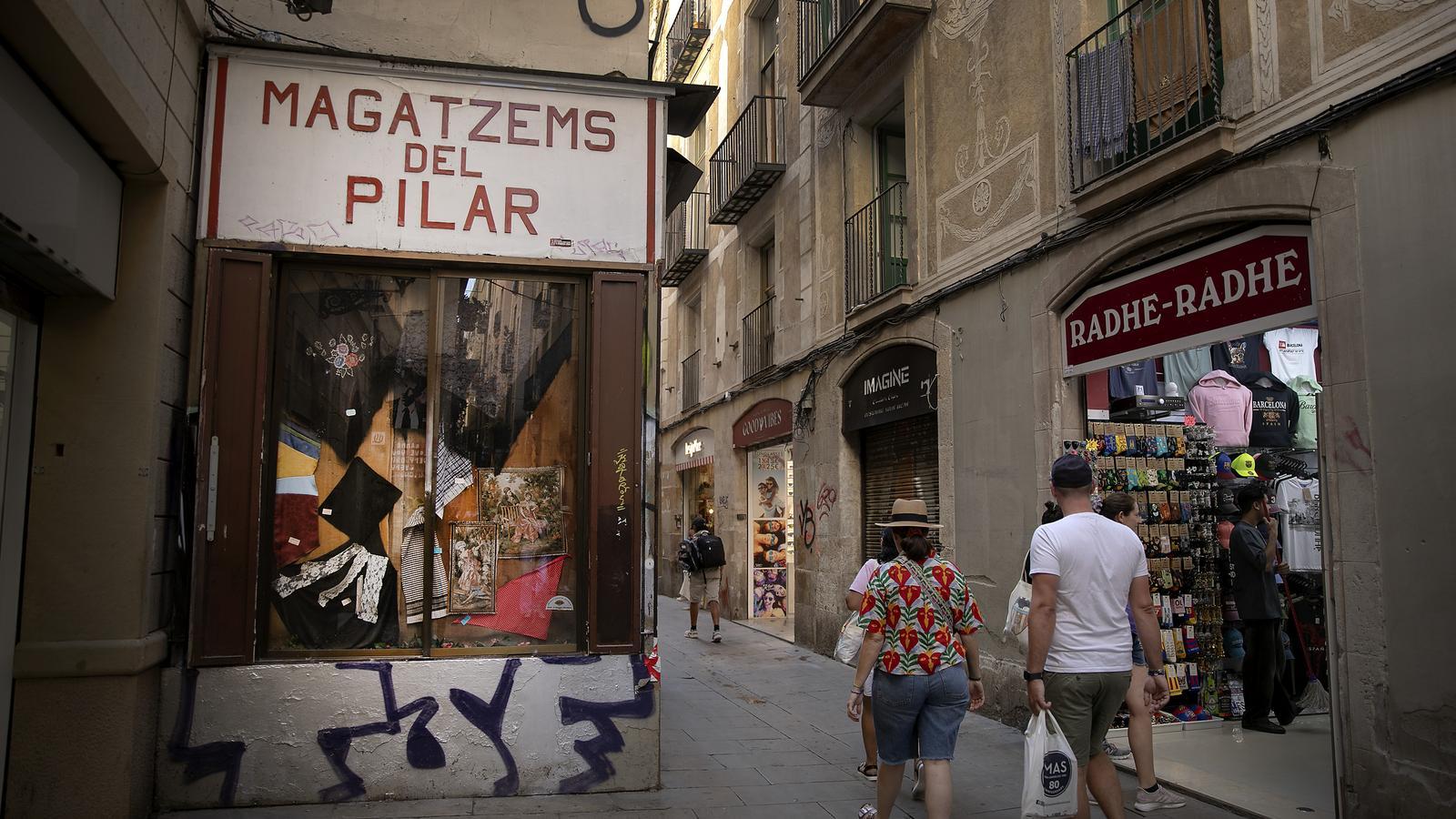Where can I get a giant, dance, or human tower costume made?
The Almacenes del Pilar business is located in the heart of Ciutat Vella, surrounded by shops aimed at tourists.


It's striking. A lot. Almacenes del Pilar, at 43 Boqueria Street, in the heart of Ciutat Vella, is an anomaly. A joyful anomaly. There are many people who enter almost as if they were entering a museum, as if they were being seduced by the strange, the odd, the dissident. "Oh, and what do you sell here?" "Is this a store?" Of course, in the middle of the Comanche territory of duplicate commerce, photocopying, carcass stores, clone ice cream parlors, broken souvenirs, the tourism Unbridled, an old shop stands out, with period furniture, old signage, and shelves full of clothes and boxes. Of rolls of clothing for making clothes, of mantillas, of traditional clothing. There's also a display of fans, one of gloves, and one of assorted jewelry. These are the things that the passerby, the occasional customer, the tourist buying a souvenir can buy. There haven't been any local customers for a long time. For the simple reason that neither the neighborhood nor the neighbors have existed for a long time. So, what is the essence of Almacenes del Pilar?
Well, the essence is explained to me by Glòria Vives, the current owner of the business, the fourth generation of the family since Mr. Alejandro Pitarque, her great-great-uncle, took over in 1913 when he saw that the premises—opened in 1886—were already established. The essence is textile manufacturing at the service of traditions and culture. It is the specialization they have cultivated over the years and the DNA that today defines them as a unique and distinctive business. The flocks and gangs of baton-waving band members, human tower builders, dancers, and giants are their preferred customers. But they also offer flamenco dresses, chestnut sellers, and attire for important festivals such as Holy Week, the arrival of the Three Wise Men, and Carnival, if appropriate. They work with their own dressmakers and embroiderers and, therefore, can adapt to the demands and needs of their customers. "Before, many years ago, the pass-through vendor would come in and buy, but for some time now, our only viable path was specialization," Gloria emphasizes.
Loyal customers? Well, the giants of Pi, for example. And the Vilanova carnivals, the Colla Jove de Barcelona, the Castellers de L'Hospitalet, Gavà, Cornellà, and Badalona. And so many others. Initially, the store occupied both floors. Today, it ends in the middle of the premises. "We could not have the store open to the public, but we like to keep it! We have experienced commerce this way, we have made it grow and we have assimilated it this way; it would be difficult for us to do it any other way." Serving people face-to-face, advising, personalized service—values that tend not to count much in modern commerce, but which have always characterized them and are essential. "Serving someone is not necessarily synonymous with selling them anything," she emphasizes. But it's a ritual that merchants and shopkeepers naturally possess as a trademark. They're paying attention while surrounded by identical stores that sell them churros, I Love Barcelona T-shirts, and thongs.
All the furniture, let's repeat, in Almacenes del Pilar is vintage: the wooden shelves, the entrance doors, the shop windows, the spiral staircase, and the posters on the façade. They're an oasis of personality embedded in the worn and perverted stone of Ciutat Vella. And do they still attract new customers, or do they all belong to the faithful? "We still do!" Wow, it's interesting that groups involved in tradition and culture are emerging that want to maintain, enhance, and even recover it. Examples? Well, the advertising of Calafell and the Agrietats del Eixample group of human tower builders.
The previous generation, epitomized by Asunción Cabedo—Gloria's mother—is also still at the forefront, although somewhat more withdrawn than a few years ago. The premises are rented, and they maintain a cordial and mutually respectful relationship with the owners, which has allowed them to maintain the continuity and essence of their business. They've been serving the clothing industry for over a century, a lifelong source of clothing. In the past, many people bought clothes by the yard and sewed everything they needed at home. This ended with the institutionalization of mass production. There are still functioning niches offering unique services that hopefully will never disappear.
